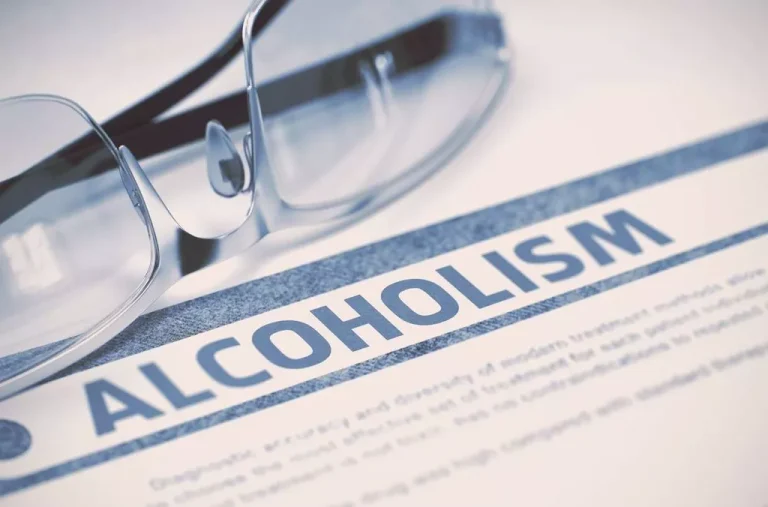
Often, the alcohol-provoked lung damage goes undetected until a second insult, such as a respiratory infection, leads to more severe lung diseases than those seen in nondrinkers. Molecular mechanisms of the dose-dependent effects of alcohol on the immune system and HPA regulation remain poorly understood due to a lack of systematic studies that examine the effect of multiple doses and different time courses. There may be important differences in the effects of ethanol on the immune system depending on whether the study is conducted in vitro or in vivo, as the latter allows for a complex psychogenic component in which stress-related hormones and immune-signaling molecules interact. In addition, most studies have been done in vitro using primary cells or cell lines in the presence of rather high, constant doses of ethanol.
- TLR4-deficient mice prevented such neuroinflammation, synaptic and myelin alterations, as well as long-term cognitive alterations [105].
- The first line of defense is called the innate immunity;1 it exists from birth, before the body is even exposed to a pathogen.
- By contrast, alcohol is one of the many factors that disrupt the proper functioning of the gut, leading to a disruption of the intestinal barrier integrity that increases the permeability of the mucosa, with the final result of a disrupted mucosal immunity.
- The IMB maintains bidirectional interaction with critical parts of the CNS [68].
- Intestinal pathogenic bacteria facilitate immune-mediated liver injury by activating dendritic cells (DCs) and natural killer T (NKT) cells in the liver [34].
Modulation of Innate Immunity by Alcohol
Alcohol has been flying off the shelves as people try to combat boredom during lockdown, with some reports estimating that alcoholic beverage sales surged by 55 percent toward the end of March. Alcohol is broken down into acetaldehyde and acetate by the liver when ingested in small amounts. That’s because alcohol can trigger the formation of free radicals and other harmful substances. They include drugs to treat allergies, arthritis, lupus, IBS, and organ transplant.
Understanding alcohol and our immune system

It’s important to note that any amount of alcohol in your system can interfere with your ability to think and function without impairment. Your central nervous system consists of the brain, spinal cord, and neurons that communicate messages throughout your body. It powers key functions and processes like movement, memory, speech, thought processes, and more.
- The first point of contact for alcohol after consumption is the gastrointestinal (GI) system before it is absorbed into the bloodstream.
- These different layers of interaction make validation of the mechanisms by which alcohol affects immune function challenging.
- If you’re unfamiliar, inflammation is what naturally occurs when your immune system goes into action.
- If you are drinking heavily or are worried you may be dependent on alcohol, reach out to a healthcare provider before you start reducing your alcohol consumption to determine the safest way to make changes.
Effects of alcohol on adaptive immunity
- In addition, alcohol interferes with TNF expression by inhibiting the normal processing of newly produced TNF that is necessary for normal TNF functioning (Zhao et al. 2003).
- Some of the most notable contributors to the innate immune response include natural killer (NK) cells, neutrophils, monocytes, macrophages, and dendritic cells (DCs).
- By adolescence and adulthood, their immune systems will be fully developed, but lifestyles might not be conducive to overall health.
- Antibodies detect and get rid of substances that are harmful to your body, including bacteria and viruses.
- In 2016, the harmful use of alcohol resulted in some 3 million deaths (5.3% of all deaths) worldwide and 132.6 million disability-adjusted life years (DALYs), i.e., 5.1% of all DALYs in that year.
- Not only does the immune system mediate alcohol-related injury and illness, but a growing body of literature also indicates that immune signaling in the brain may contribute to alcohol use disorder.
Alcohol also causes damage to the cells in the outside layer of your stomach and intestines. As a result, bacteria may leak from the GI tract into your bloodstream, which can itself make you sick. Also, bacteria that escape this area can change the immune system in your liver, which can lead to inflammation and, potentially, alcoholic liver disease. Studies show that liver cells can start to recover in as little as 2 weeks when people stop drinking. Quitting drinking will not reverse any damage that’s already been caused by inflammation. And high fat diets over time can upset the balance of bacteria in your gut that can help immune response.

Several studies have also shown that the lungs are highly vulnerable to the effects of alcohol. For example, alcohol can reduce the ability of respiratory epithelium cells to remove mucous from the lungs, which can directly damage lung tissue and weaken the proper functioning of the lungs over time. Although this chronic weakening does drinking lower your immune system of lung function may not cause any immediate symptoms, these effects can manifest when a severe respiratory infection occurs. “By damaging those cells in your intestines, it can make it easier for pathogens to cross into your bloodstream,” says Nate Favini, MD, medical lead at Forward, a preventive primary care practice.
How alcohol impacts the gut
It can also bind to other proteins to form adducts, such as malondialdehyde (MDA) and MDA-acetaldehyde (MAA), which play a key role in the development of liver injury and stimulate antibody responses that further promote liver inflammation and fibrosis (Tuma and Casey 2003). In addition, oxidation of ethanol by CYP2E1 leads to the formation of reactive oxygen species (ROS). Elevated levels of ROS cause oxidative stress which has been shown to play a role in several harmful processes including cancer development, atherosclerosis, diabetes, and inflammation (Tuma and Casey 2003). Alcohol can impact various parts of the body, including the brain, heart, liver, and pancreas, as well as essential body systems like the immune and digestive systems. Alcohol use can increase the risk of cardiovascular problems, cognitive decline, liver disease, mental health conditions, and more.
Ethanol Metabolism
But the investigators were surprised to find that the monkeys deemed as moderate drinkers demonstrated an enhanced vaccine response. “Alcohol also destroys the protective lining inside your respiratory tract that your immune system uses to prevent upper respiratory tract infections like the common cold,” Dasgupta says. Lung conditions linked to alcohol include pneumonia, tuberculosis and acute respiratory distress syndrome, according to the NIAAA. Understanding how alcohol affects the mind, body, and overall health can help you make the most informed decisions about your consumption habits. If you’re concerned with your alcohol consumption and attitude toward drinking, talk to a healthcare provider as a first step.
Do Beer and Wine Cause Worse Hangovers Than Spirits?

The large part of alcohol metabolism in humans occurs in the hepatocytes, main cells of the liver. Ethanol is metabolized by alcohol dehydrogenases (ADH), catalase or cytochrome P450 2E1 to acetaldehyde which is then further oxidized to acetate by aldehyde dehydrogenase (ALDH) [40]. Ninety percent of the moderate alcohol consumed is metabolized through oxidative conversion by alcohol dehydrogenases enzymes while the microsomal ethanol–oxidizing system (MEOS) handles the remaining 10%; this last route acquires greater importance when alcohol consumption increases significantly. MEOS leads to the production of oxygen free radicals, which can cause cellular damage [41]. Besides in the liver, the enzymes involved in the oxidative metabolism of alcohol also are present in the intestinal mucosa and intestinal bacteria also produce acetaldehyde in the gastrointestinal tract [41].
Your liver produces enzymes that break down alcohol, but your liver can only handle so much alcohol at one time (approximately 1 ounce per hour). That’s because your body already has processes in place that allow it to store excess proteins, carbohydrates and fats. So, your system prioritizes getting rid of alcohol before it can turn its attention to its other work. But when you ingest too much alcohol for your liver to process in a timely manner, a buildup of toxic substances begins to take a toll on your liver.




